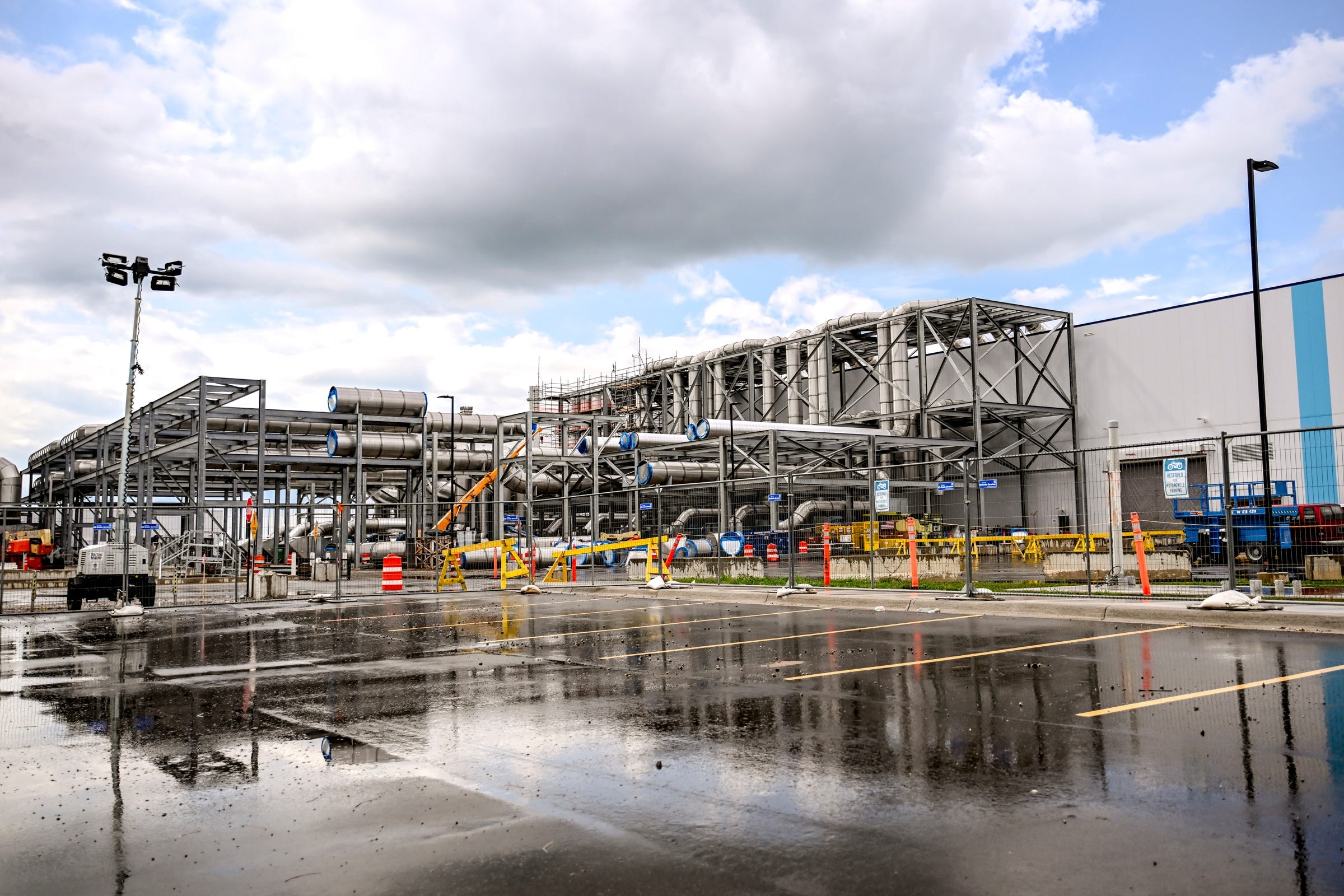Toyota Motor Corp. has officially confirmed its order for electric vehicle (EV) batteries from the Ultium Cells plant located in Delta Township near Lansing, Michigan. This development redirects battery production originally intended for General Motors (GM) to the Japanese automaker.
Earlier reports indicated that GM would sell back its investment in the $2.6 billion Ultium Cells plant. This Lansing facility was initially planned as the third joint venture battery plant between LG Energy Solution and GM, adding to their existing operations in Ohio and Tennessee. GM’s decision to relinquish its stake stems from a confidence in its current battery production capacity at the operational Ultium Cells plants to meet its EV demand.
Industry sources, as reported by Transportation Topics, value the battery order at $1.5 billion. GM communicated in December its intention to divest from the Lansing plant, citing sufficient battery cell production from its existing Ultium Cells facilities in Warren, Ohio, and Spring Hill, Tennessee. These plants currently produce the Ultium batteries powering key GM electric vehicles such as the Chevrolet Silverado EV, GMC Sierra EV, Cadillac Lyriq, Chevrolet Blazer EV, Chevrolet Equinox EV, and the GMC Hummer EV pickup and SUV.
 Ultium Cells Battery Plant Construction Update in Delta Township, Michigan: Future site of EV battery production for Toyota and other automakers, showcasing the scale of Ultium battery technology.
Ultium Cells Battery Plant Construction Update in Delta Township, Michigan: Future site of EV battery production for Toyota and other automakers, showcasing the scale of Ultium battery technology.
While Ultium officials have not issued an immediate response, local authorities have welcomed the news. Delta Township Supervisor Fonda Brewer emphasized the positive impact of Toyota’s order. “Delta Township welcomes this investment, bringing jobs and innovation to our community,” Brewer stated. “We look forward to working with Toyota and LG to support sustainable growth and economic opportunity.”
Echoing this sentiment, Lansing Mayor Andy Schor highlighted the regional benefits. “The plant will sustain 1,700 workers … in our community, employing residents in the plant and hundreds in construction trades,” Schor said in a statement. He further added, “LGES has indicated their strong commitment to building batteries here and I look forward to hearing more about this new partnership to sell batteries that are produced right here in Lansing by Lansing workers.”
Construction of the expansive 2.8 million-square-foot Ultium Cells plant began in May 2022. GM’s spokesperson, Kevin Kelly, previously mentioned that LG Energy Solution would utilize the plant’s capacity to produce battery cells for another automaker’s EVs, without naming the manufacturer at that time. Kelly also confirmed that LG Energy Solution would compensate GM for its investment in the facility, estimated to be around $1 billion.
This development signifies the continued expansion of Ultium battery technology beyond General Motors, now powering the electric vehicle strategy of Toyota and potentially other automakers in the future. The Lansing Ultium Cells plant is poised to become a significant hub for EV battery production, contributing to the growing electric vehicle market and solidifying Ultium’s position as a leading battery technology in the automotive industry.
